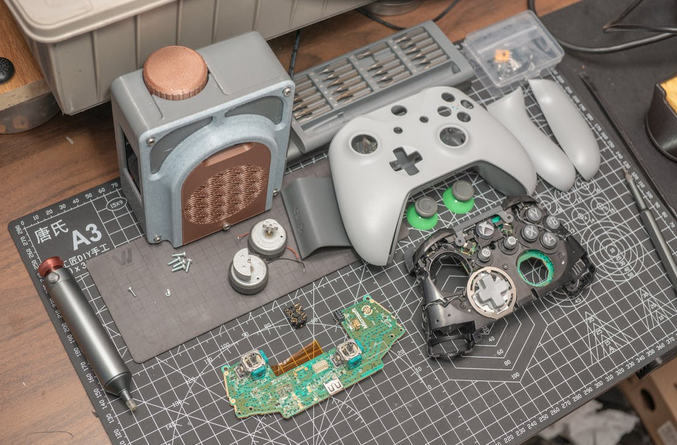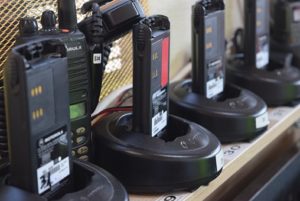How to Dispose Old or Dysfunctional Electric Appliances

As technology advances, the turnover of electric appliances in our homes increases. Proper disposal of old or broken electric equipment is critical for environmental sustainability and adherence to municipal rules. So, what does one have to consider when they want to dispose of an old electrical essential oil diffuser? This guide shares the steps and considerations for responsibly discarding outdated or broken electronic devices.
Common Environmental Impact

Improper disposal of electric appliances can have severe environmental consequences. Many appliances contain hazardous materials which can contaminate soil and water if not handled correctly. Understanding the ecological impact better equips you to make responsible decisions that minimize harm to our planet.
Recycling Programs
Many regions have established recycling programs specifically for electronic waste (e-waste). These programs are designed to safely dismantle and recycle components of electric appliances, ensuring hazardous materials are properly managed. Reach out to your local waste management authority to find out about e-waste recycling options in your area. Many retailers also offer take-back programs where you can return your old appliances when purchasing new ones.
Donation and Reuse
If your appliance is still functional but you no longer need it, consider donating it to a charity or thrift store. Many organizations accept used appliances and refurbish them for resale or donation to those in need. This not only extends the life of the appliance but also supports community initiatives. Before donating, ensure the appliance is in excellent working condition and meets the safety requirements of the receiving organization.
Manufacturer Take-Back Programs

Some manufacturers offer take-back programs for their products. These programs allow you to return old appliances directly to the manufacturer for correct disposal or recycling. Check with your appliance manufacturer to see if they provide this service. These programs often ensure that the appliance is recycled in an environmentally responsible manner.
Local Hazardous Waste Collection Events
Many communities host periodic hazardous waste collection events where residents can drop off items like old appliances, batteries, and other hazardous materials. These events are designed to handle items that cannot be disposed of through regular waste channels. Participating in these events ensures that your old appliances are managed by professionals who can safely handle hazardous components.
Disassembled for Parts
If you are knowledgeable about electronics, consider disassembling old appliances for usable parts. Many components, such as motors, fans, and circuit boards, can be repurposed or sold to hobbyists and repair shops. This method reduces waste and can also be a source of spare parts for future projects.

Local Regulations
Regulations governing the disposal of electronic trash vary by area. Ensure you know local laws and guidelines to avoid fines and penalties. Properly labeling and separating e-waste from regular trash is often required by law and facilitates more efficient recycling processes.
Disposing of old or dysfunctional electric appliances requires careful consideration of environmental impacts, available recycling options, and local regulations. By participating in recycling programs, donating functional appliances, utilizing manufacturer take-back programs, attending hazardous waste collection events, hiring professional disposal services, and potentially disassembling parts, you can ensure that your e-waste is managed responsibly.…



 newbie to walkie talkies and Citizen Band radios, you may want to consider something cheaper until you know for certain that you’ll enjoy this new and exciting hobby. You can consider a used walkie-talkie as one way to find an affordable CB radio. All handheld CB radios will have the same basic features. If you’re a seasoned veteran, however, you’ll most likely have a higher budget and focus on brands like handheld radios. Knowing your budget will help you make the right choice. If you are looking to buy the best walkie-talkies, then www.walkietalkiecentral.com is the best option for you.
newbie to walkie talkies and Citizen Band radios, you may want to consider something cheaper until you know for certain that you’ll enjoy this new and exciting hobby. You can consider a used walkie-talkie as one way to find an affordable CB radio. All handheld CB radios will have the same basic features. If you’re a seasoned veteran, however, you’ll most likely have a higher budget and focus on brands like handheld radios. Knowing your budget will help you make the right choice. If you are looking to buy the best walkie-talkies, then www.walkietalkiecentral.com is the best option for you. had the walkie talkie in a car and used your 12-volt cigarette adapter, you’ve probably heard the noise from the engine come through your CB’s speaker. The NB/ANL feature reduces white noise that infiltrates reception and improves basic sound quality, allowing you to hear conversations better, especially those coming from a fair distance.
had the walkie talkie in a car and used your 12-volt cigarette adapter, you’ve probably heard the noise from the engine come through your CB’s speaker. The NB/ANL feature reduces white noise that infiltrates reception and improves basic sound quality, allowing you to hear conversations better, especially those coming from a fair distance.
